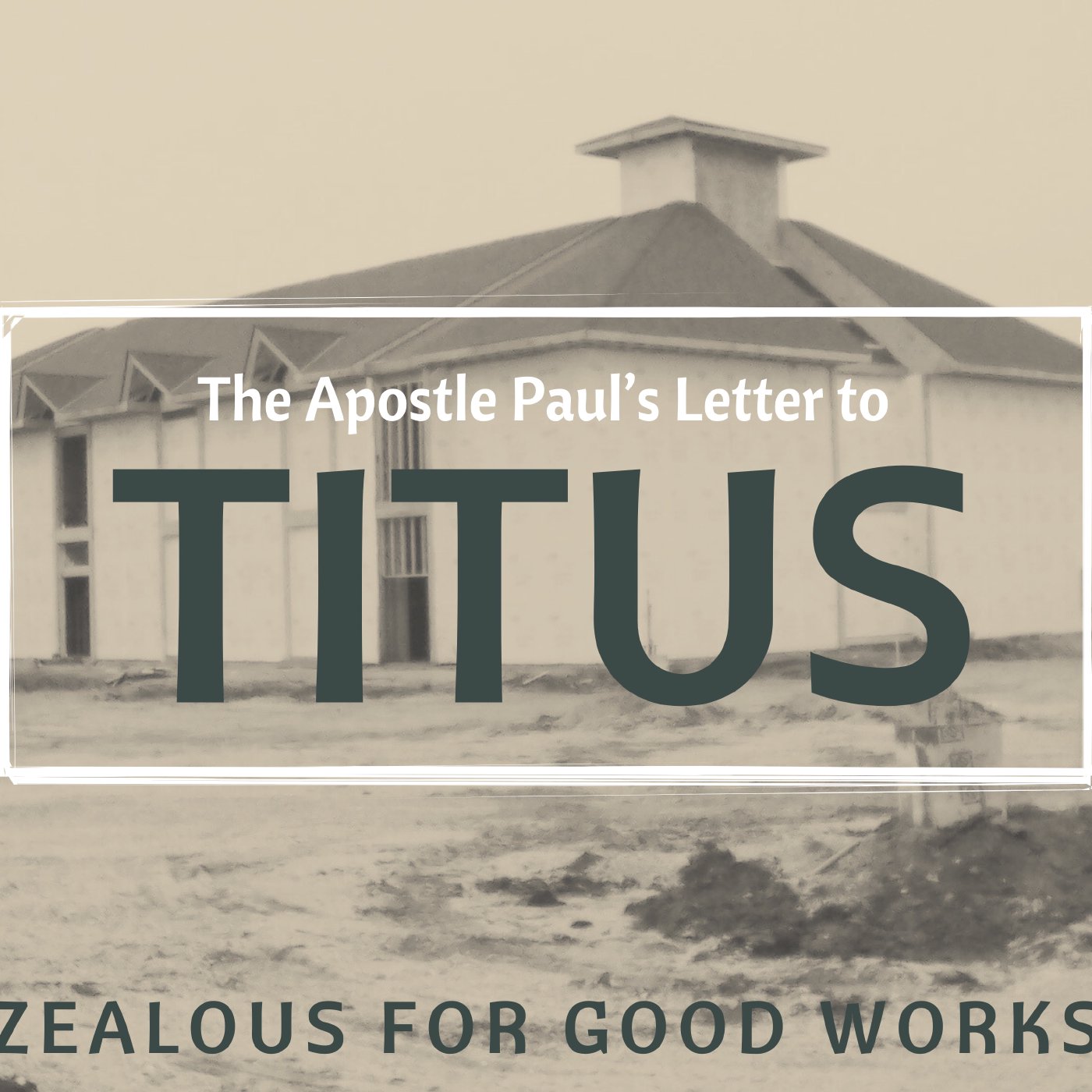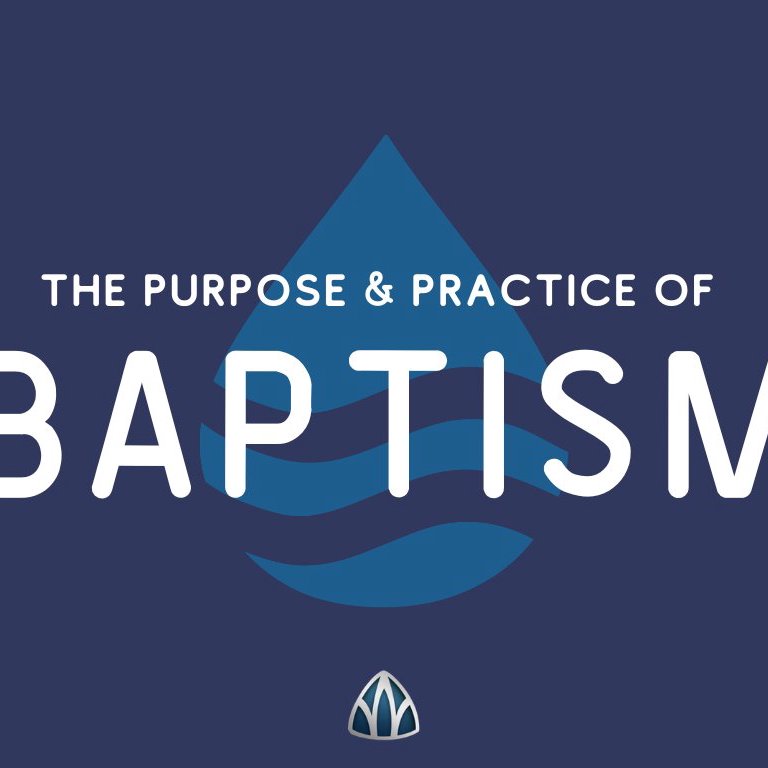567 episodes


Having remembered and given thanks to God for the sin-atoning death of Jesus Christ we will gather again on Easter Sunday to rejoice in the resurrection. For not only did Christ die for us, Christ was also raised from the dead for us. This glorious reality of Jesus’ resurrection is the guarantee of our justification and promises our resurrection. May our hearts overflow with joy this Easter because Christ was raised from the dead!


On Good Friday we will gather together to remember and give thanks to God for the sin-atoning death of Jesus Christ. Because Christ died for our sins we have been forgiven and reconciled to God. How great is the love, the grace and the goodness of our God who sent Christ to save us!


This passage will have us considering the limits of wisdom and pleasure. Both can be blessings but neither will satisfy our heart’s greatest desire. In the end, the Preacher in Ecclesiastes tells us that the pursuit of wisdom and pleasure becomes a striving after wind.


We will begin this sermon series on Ecclesiastes by considering who the author is, his purpose for writing and his struggles with the futility of life under the sun. Though considered by many to be a difficult, even discouraging book, Ecclesiastes will challenge us to think more deeply about life and reinforce the importance of knowing and living for Jesus Christ.


Jesus Christ has given his church two ordinances, or sacraments; baptism and the Lord’s Supper. In this fifth and final sermon in our series on corporate worship, we will consider how baptism and the Lord’s Supper are new covenant signs that allow us to see the word.


Of all the places prayer is offered, church seems most obvious. But perhaps you've never examined why church must be a place where God's gathered people raise their petitions together in prayer. In this sermon on the corporate praying of the Word, we'll see from Ephesians how God is pleased to fulfill His purposes through the righteous wrestling of His people.


In this third sermon on corporate worship, we will be focusing on singing the Word. We will go over the biblical reasons why we sing to God, how singing is formational in our hearts, helps shape our affections no matter our circumstances, and how God's Word should be the focus of what we sing corporately.


We believe that the Bible, which is the inerrant, infallible and sufficient Word of God is the ultimate and final authority in all matters of faith and practice. For this reason the Holy Scriptures are to be central in corporate worship. In this second sermon in this sermon series the focus will be on the reading and the preaching of God’s Word in corporate worship on the Lord’s Day.


Our life as Christians is meant to be lived in community with other Christians. This is evident with the biblical metaphors for the church, which consistently portray a multitude of believers together—not isolated individuals doing their own thing. When God's chosen race, royal priesthood, and holy nation gather for corporate worship, these individual precious living stones are built up into a spiritual house, offering spiritual sacrifices to God through Jesus Christ. Join us as we begin our series on corporate worship and explore why and how it serves as a primary means for accomplishing our church's mission to glorify God by proclaiming the gospel, making disciples and treasuring Christ above all.


In the closing verses of Paul’s epistle to Titus we find far more than travel plans and formal pleasantries. These final instructions reinforce the importance of godly leadership and good works, both of which have been Paul’s priorities throughout the letter. Paul’s concluding words also provide the church with practical examples of Christian love and the type of good works we are to be zealous for.


The apostle Paul has made it clear throughout the epistle to Titus that the gospel changes the way that Christian’s live. This emphasis on believer’s doing good continues throughout the last section of the letter as Paul instructs Titus “to insist on these things”. This passage also contains valuable instructions on how the church is to respond to those who are not devoted to doing good evident by the division they cause in Christ’s church.


In Titus 3:3 we are told what we all were before God saved us. We “… were once foolish, disobedient, led astray, slaves to various passions and pleasures, passing our days in malice and envy, hated by others and hating one another.” In Titus 3:4-7 we are told how God saved us and who we are now that God has saved us. May these great gospel truths increase our joy and cause us to worship the God who saved us.


In the first two chapters of Paul’s letter to Titus the focus is mainly on the church and how Christians are to interact with one another. In these verses Paul’s focus shifts to how Christians should interact with those outside of the church, specifically, rulers and authorities in the civil government. This passage provides practical teaching and theologically reasoning behind such interactions.


In a culture where our actions are dictated by our feelings, God’s Word reveals that our actions should be dictated by truth. Join us this week as pastor Matt Jantz unpacks the connection between truth and godliness out of Titus 2:11-15.


For some time we have made it our practice for the last or the first sermon of the year to be connected to the doctrine of scripture. Along with being an opportunity to reinforce and strengthen understanding of the Bible this sermon is used to encourage daily Bible reading in the new year. With the last Sunday of 2023 being New Year’s Eve day, this sermon on the authority of the Bible will have us ending this year and beginning next year with the Word of God.


To help us joyously celebrate the birth of Jesus Christ we are spending three sermons considering the incarnation. Last week, Pastor Luke spoke about the humanity of Christ. In this sermon we will look at what Colossians 1:15-22 teaches us about Jesus’ divinity and why it is essential to our salvation.


To help us joyously celebrate the birth of Jesus Christ we will spend the next three sermons considering the incarnation. In this sermon we will look at what Galatians 4:4-5 teaches us about Jesus’ humanity and why it is essential to our salvation.


In part one of the sermon “What Christian Women Are to Be” the focus was on what Titus 2:3-5 teaches is to be true of the older women in the church who are to be training the young women. In part two, the focus will be on what this passage teaches is to be true of the young women in the church. At a time when so many, including many professing Christians, reject the important and unique role that God has given to women, it is imperative that the Christian church believes and applies what God’s word teaches about women.


Regardless of what the Lord has called you to in this life, you have an extraordinary opportunity to achieve a most-glorious thing. You—yes, you—can adorn the doctrine of God through a life of humble integrity.


Having previously considered what this passage teaches about Christian men, we now turn our attention to what this passage says Christian women are to be. As the culture around us increasingly opposes what God’s word says women are to be, it is of great importance that the church unashamedly teaches such things.


To all who know the weariness of working to control your every circumstance — and even God Himself — Scripture offers a better, more refreshing way: walking humbly with our God.


A terribly wicked and destructive false teaching has taken root in the minds of many today. This false teaching has left people unable (or unwilling) to understand something as basic and fundamental as what a man is and what a woman is. In such confused times it is of the utmost importance that Christ’s church understands and teaches not only what men and women are but what they are to be. In this passage Paul gives the church instruction on what older and younger Christian men are to be.


Our works are not the basis of our justification. However, justification by grace alone, through faith alone, in Christ alone does not mean that our works don’t matter. Scripture teaches us that one’s works can be evidence of saving faith or of false faith. In these verses the apostle Paul explains that though the false teachers in Crete professed to know God their works denied God revealing that their faith was a false faith. Considering what these works were and how they denied God will help us avoid false teachers and their message today.


The nicest boys in church are often encouraged to be pastors. While being nice can make conversations with a pastor more pleasant, being nice is not a requirement for pastoral ministry. In fact, this passage teaches us that there will be times when a pastor cannot be nice, at least not a faithful one.


When churches use the world’s standards to choose their pastors instead of the Lord’s standards the result is often worldly and weak churches. These verses record more of the Lord’s standards for pastors in Christ’s church telling us the type of man an elder must be to lead in Christ’s church.


We will continue our expositional series in Titus in chapter one, verses five through six. In this text we will see that Paul's emphasis to Titus is to provide order to the church in Crete and the first order of business is to appoint elders. This appointing and the qualifications associated with it will begin here in our verses and continue in weeks to come, however we will be first starting off primary qualifications for these leaders within the church.


In the opening words of his letter to Titus the apostle Paul makes it clear who he is and his reason for writing. Paul calls himself a slave of God… a slave? Yes! He is a man who knows that he belongs to the LORD and does what he does for the sake of the faith of God’s elect. A title like slave of God reveals much about who Paul is and his apostolic ministry. In these first four verses we also get a sense of the focus of this pastoral letter and the type of relationship that Paul had with Titus.


This fourth and final sermon will build upon the foundations laid in the previous three sermons to answer some of the important questions regarding when children in our church family should be baptized. We will consider matters like false assurance, the role and authority of parents, and the connection between baptism and church membership.


In this third of four sermons on the purpose and practice of baptism we will consider what it means that baptism is an ordinance of the New Covenant as well as the benefits and blessings of this New Covenant ordinance appointed by the Lord Jesus Christ.
